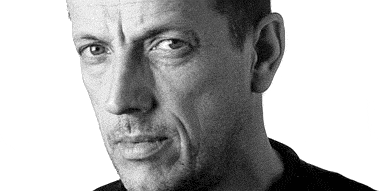The characters in my plays have always been “unappeased”; all of them, from the horse trainer Michele Kohlhaas to the latest bandit Carmine Crocco, from Ibsen’s Peer Gynt to von Chamisso’s Peter Schlemil, belong to this existential category. Their detachment from society and the time in which they live their lives, derives from a special condition of being outside standards and conventions. They are anti-heroes, not destined to play a leading role in History, but in spite of this, because of their belief in principles and sentiments that cannot be written off or compromised, they actually write history.
It is clear that History has to eliminate them, they are figures destined to be defeated, and this is probably why I love them. They symbolise a conflict that can only break out with the statutes of society that surrounds them. The characters live in constant precariousness, there is no place for them, but they continue to look for a place, they want one, they aspire to human and social justice, they want to feel welcomed and understood, not banished and exiled. But this does not happen and this generates their terrible nature.
Camus’s Meursault is a perfect example of an unappeased person, his detachment is total, in his very ingenuity. When I directed him, performed him and imagined him on his last night before his execution, the stage was a raft of disconnected tablets hanging on four pulleys that lifted it off the ground; it was my cell covered with sand, in which I moved in constant precariousness, the tablet shook, the table and chair rocked, nothing, not even my body, was safe. This is the condition of someone who finds he is a stranger in his own country, he no longer has solid ground under his feet, he is always on the point of falling, of losing himself.
“A man who always tells the truth”, this is a social deviance of Camus’ character, and for this unshakeable essence he will face the guillotine, like Kohlhaas who was hanged for his unwavering faith in justice, like Carmine Crocco who is in prison because he thirsts for dignity.
They are not nice, saintly characters, they are full of life, so they are also obscure and ambiguous, at times brutal, often incapable of the necessary meditation. I wondered if my liking for these characters is also a way of identifying with their existential credo. Maybe in a way it is, maybe I love them for the theatrical force contained in their stories, for the unresolvable conflicts that they represent. For the restlessness they bring to the stage that even affects the spectators. These characters do not belong to the so-called civil theatre, they are not innocent victims whose stories generate indignation; no, their existence troubles, scares and disturbs us. This is what I ask of the theatre.
Marco Baliani



